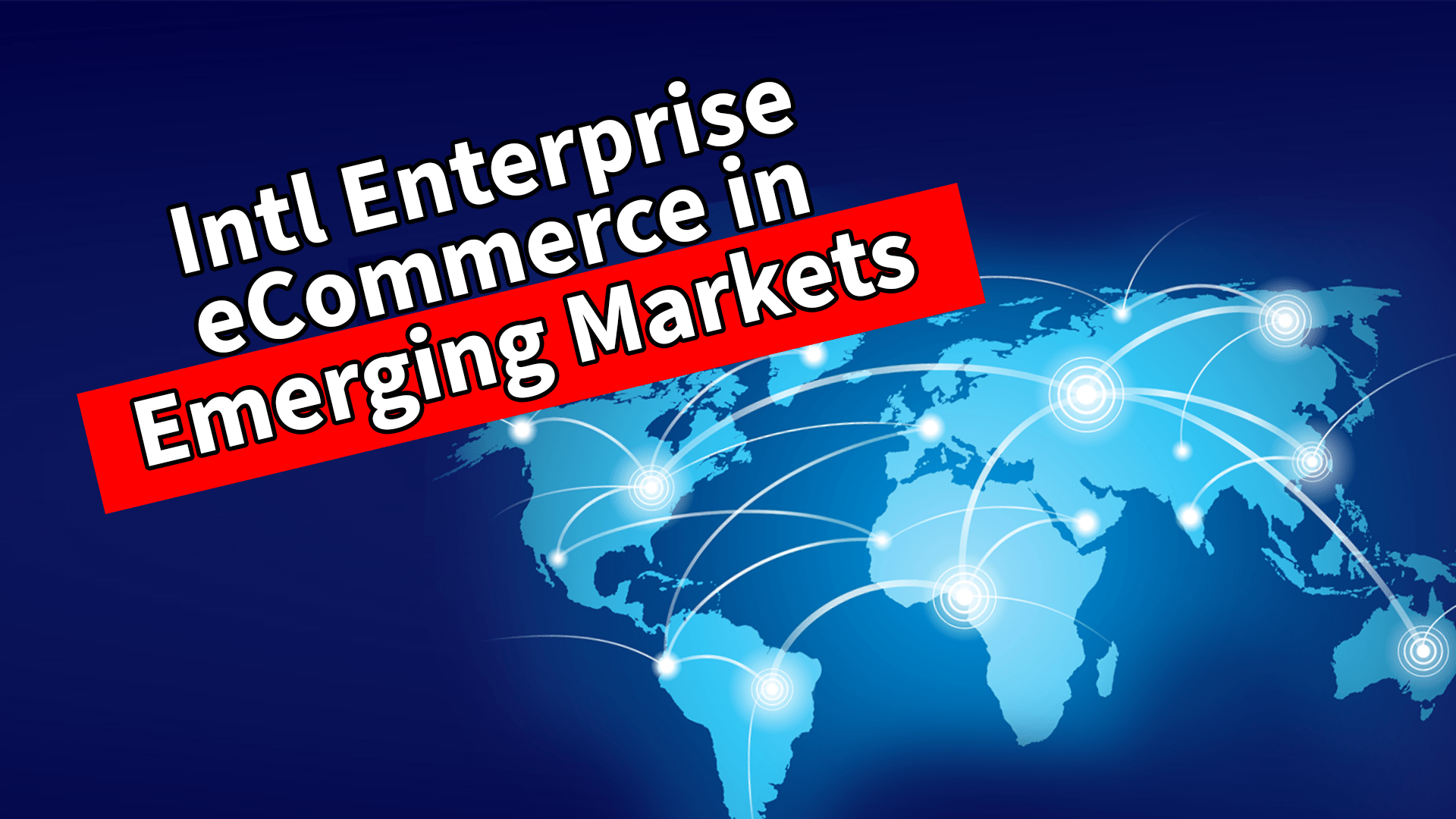At Optimum7, ninety to ninety-five percent of business operations are eCommerce. Fortune 100 companies and larger international operations send requests to the marketers about going digital thanks to COVID-19’s financial impact.
Challenges of Operating in a Global eCommerce Market
When we talk about international eCommerce in emerging markets, what are some of the challenges that we hear from clients and prospects? What challenges have we resolved for our clients?
The biggest issue is logistics. Companies see issues from accessibility to customs.
Are you shipping from that country? Are you getting that product from another country? Do you have a warehouse within that country? All of these things play a part. At the end of the day, it’s causing a logistical nightmare, especially in some countries in Latin America and even the Middle East. There’s no delivery service to these individuals who live in certain areas. You’re obviously now marketing to a much smaller and market that you can actually access.
When you look at giants like Amazon, Joe, Amazon is spending billions of dollars in logistics. They started doing their own shipments in the United States while building their own international shipments and customs departments. Amazon needs to compete with Alibaba and Flipkart.
Consider this scenario. On July 23, 2020 Flipkart bought Walmart, India. It is getting too big, and India is an emerging market. And there are so many other markets like this.
Security and payment systems are also a concern. When you’re dealing with international shipments or emerging markets, you might not have the right technologies in either area respectively to create an address verification system or AVS. If you wanted to ship products to certain African countries, for example, you’re going to deal with payment and currency exchange issues.
Online Purchases and Shipping using Address Verification Systems for Global eCommerce Businesses
Let’s talk about AVS, the Address Verification System. Why is that important when you’re running an eCommerce operation?
AVS or Address Verification Systems are really the only way you can verify that an individual is who they say they are. And they’re shipping to the location that matches their billing information. And what this does is it allows you to catch that fraud before it comes through. And unfortunately, within these emerging markets, we’re seeing a ton of fraud.
Firms should have a payment system or a module that integrates with local banks and credit cards, of that emerging market. Unfortunately, you don’t have an AVS or methods with some of these banks. They are very strict in who receives credit cards. Some Middle Eastern and Eastern European countries like Turkey, Ukraine, Azerbaijan, Uzbekistan, and Tajikistan don’t allow international orders or their local credit cards to be used internationally, because there’s a lot of fraud.
You still have cash on delivery, and a lot of these emerging markets work with it. The problem is that if you are shipping to an emerging market from another country, that counts as an international shipment. Then it devolves into a logistical nightmare because you have to deal with customs.
Add cash on delivery to that. Even if you clear this item through customs if the person who made the order is not home or says, “I didn’t order this,” then the product needs to go back to the original warehouse. It’s going to cost you twice the money.
Optimum7 is very familiar with processes to resolve these issues. The marketers do consultations about the solutions for larger enterprise international customers.
Processing Payments Methods for Foreign Currencies
Let’s talk more about currency.
Suppose Optimum7 is shipping from Germany to emerging markets like Eastern Europe and South Africa. Every country has a different currency and various banks, credit card companies and merchant accounts will have a different exchange. Turkey uses Turkish liras, Japan uses yen, and European Union countries handle euros.
Language is another concern. If you’re trying to ship to Optimum7 from Germany, you’re probably going to have an English-speaking website with dollars listed. That is because English is the most common language, and Americans want to see the exact price.
Let’s say a marketer uses his Turkish credit card. It’s going to take any currency exchange today, from Turkish lira to euro or dollar. But the exchange rate that he post on a website might be different from the exchange rate that the bank uses at the specific time of purchase with my Turkish credit card.
This can cause problems. You might list something as 30 liras, and it’s actually 200 Turkish liras. The marketer’s credit card statement comes and it’s 201 or 202.5 Turkish liras. You’re going to get so many chargeback attempts. A customer will say, “Well, I ordered something for 200 liras. This is charging me 201. Who the hell is this company?”
There are international systems that integrate and solve these currency issues. Unfortunately, many clients and prospects are not aware of this. Companies in the US that ship to Europe have the same problem if they don’t use an international provider.
Online Sales On Mobile And Inventory Management
How about inventory management and third-party logistics systems?
Growing eCommerce companies are selling in emerging markets. The majority of their consumers that are buying from them out of these markets are using their mobile phone. Over ninety percent of these individuals are using their mobile phone.
Why is this the case?
Consumers have twenty to thirty times more mobile devices than laptops and desktop computers. Within most emerging markets, people bought mobile phones before they even had a computer.
If you’re an eCommerce store owner and you’re selling within these emerging markets without Apple Pay, Google Pay, or PayPal on your eCommerce store and mobile, you’re losing money. When it comes to the exchange rates and currency, such services solve those problems for you. That solves another problem.
You also need to consider the logistics from an inventory management standpoint. When you are dealing with international shipments, you have to track quantities.
Perhaps you might be working with a third-party logistics system. At Optimum7, we own and operate our own eCommerce businesses. So for example, we send products to the UK and we have third-party logistics (3PL) that we use in the UK, Germany, France, and other countries.
You don’t have to have a warehouse in desired countries to be able to operate in them or their markets. With the 3PL or inventory management that you select, how many containers are you going to send? How many SKUs and quantities of them? The forecasting of this and making sure that your logistics are in line with your sales forecast is another aspect of Optimum7 consultation that we can help you with planning for these scenarios. Review the answers before you start this operation.
At Optimum7, marketers know how Fortune 100 companies or larger enterprise companies can thrive in emerging markets. If you have any questions, please reach out to us.
Looking to give your eCommerce business an early start in emerging international markets?





